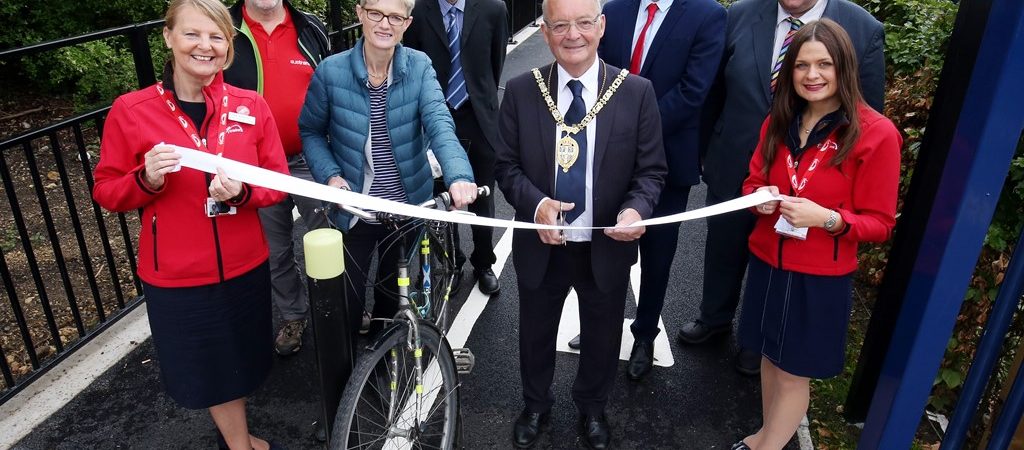In conversation: Estelle Blanks discusses the Innovation Project Development Fund
As Deputy Director of Innovation SuperNetwork, Estelle Blanks works with North East businesses to help them get the funding they need by connecting them with investors through events such as FinanceCamp.
Estelle discusses how businesses in the early stages of an innovation-based project can benefit from up to £200,000 worth of project development funding that’s available in the Innovation Project Development Fund.
Read on to find out if this is for you and what the next steps are.
Why is the Innovation Project Development Fund important?
The North East LEP, as part of the North East Strategic Economic Plan, is committed to creating more and better jobs in the region and help give a long-term productivity boost to the economy. Ensuring there is a strong pipeline of projects that encourage innovation-led growth is essential to deliver this vision. This is what the Innovation Project Development Fund is all about.
The Innovation SuperNetwork is a key pillar of the North East LEP’s innovation strategy, bringing together over 50 stakeholders and reaching out to over 5,000 SMEs in the North East region. We help promote the innovation profile and brand equity of the region and we bring together the regional innovation community across academic networks, catapults, industry and innovation hubs. As such we are keen to see more innovation projects develop and benefit from the new Innovation Project Development Fund.
What types of companies are eligible for the fund?
The Innovation Project Development Fund exists to help companies and projects that can make a real impact on the North East economy raise the capital they need to go and make their plans a reality. Prospective applicants can be from the public, private or voluntary sectors.
This is project development funding for strategic innovation projects (larger than £5m in total) which will enable the project to progress to achieve full funding routes.
If your company creates more jobs in the region, encourages collaboration, or contributes to the productivity and growth of the North East’s economy through innovation, this may be for you.
What types of projects are eligible for the fund?
The North East LEP is inviting bids from early stage innovation projects to come forward for development stage funding. Projects that are anticipated to be over £5m in scale by the end of the project are encouraged to come forward. You should apply for this funding if your project supports the strategic aspirations of the North East LEP’s Strategic Economic Plan and the Industrial Strategy.
The projects must be capital, represent a strategic step change and result in key outputs such as jobs growth, business start-up and growth and the development of new products, processes or services.
Projects will need to demonstrate engagement and partnership between businesses and research institutions.
The Innovation SuperNetwork may be able to introduce you to potential partners and a network of other organisations and businesses who may be seeking collaboration or a partnership or even help with a particular technical aspect of your project.
Next steps for Innovation Project Development Fund applicants
Interested in applying for this funding? Here are the next steps for applying to the Innovation Project Development Fund.
Get in touch
The North East LEP welcomes informal discussions and queries from interested parties, so if you have any questions at all or need help assessing the eligibility of your project, just get in touch with James Davies ([email protected] / 0191 561 5430).
Have a look online
There’s plenty of guidance around the funding and the application process on the North East LEP website, including a scoring matrix that will help you easily identify whether you qualify for the funding or not.
I would also recommend reading the Strategic Economic Plan and the Industrial Strategy, as they’ll reveal what the North East LEP is looking for from applications.
Get collaborating
The Innovation SuperNetwork can use its network to help businesses make connections and can provide support which will allow you to access new markets and opportunities which can help you get access to funding such as this.
How to apply
Make sure you read through all the guidance documents and check you are eligible for the Innovation Project Development funding.
If you’re interested in submitting an application, please contact either James Davies (details above) or Ben McLaughlin ([email protected] 0191 561 5430) and ask for the relevant application form and guidance.
The deadline for submissions is midnight on the 30 March 2018.
For more information on the Innovation Project Development Fund see here: https://www.nelep.co.uk/news/lep-funding-available-early-stage-innovation-projects/








